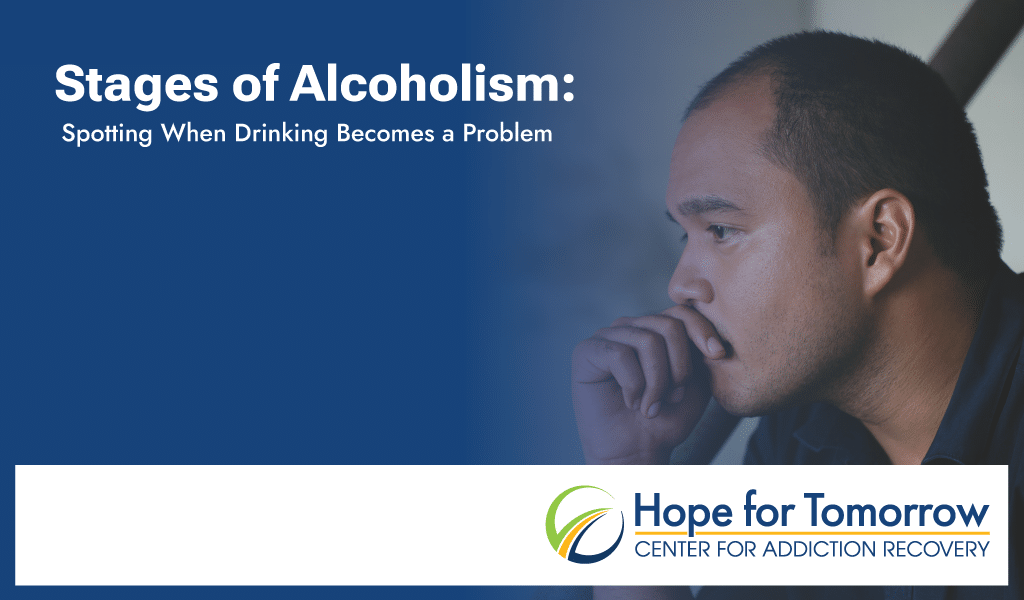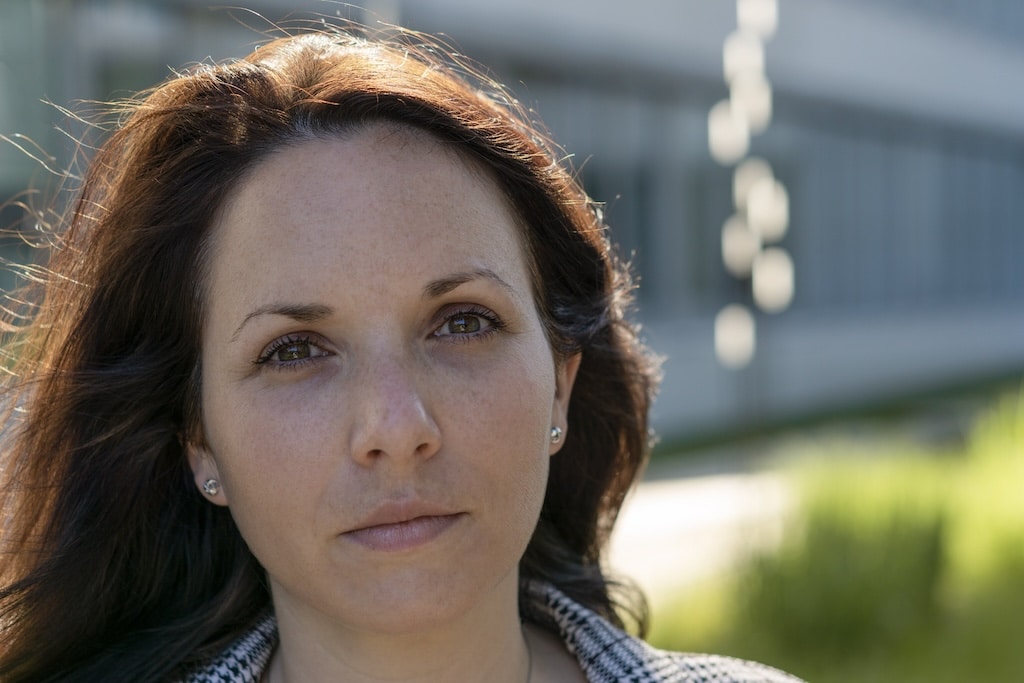

Nearly 4% of people in West Virginia had alcohol use disorder in 2019.
No alcohol use disorder is exactly the same as another. Just like the people who live with them, alcohol use disorders are multi-faceted. They have differences and varying severities. At Hope for Tomorrow, we understand that, and treat all components of the condition with individualized treatment plans for every patient.
Sometimes, it’s easier to understand complex concepts through timelines and scales of severity. The same is true for alcohol use disorder. How do you know when your drinking habits are a concern? What do the effects of long-term alcohol use disorder look like? Let’s cover the stages of alcoholism and what happens during each of them.
It’s important to know that while there are commonly understood “stages of alcoholism,” they aren’t official diagnoses. The Diagnostic and Statistical Manual of Mental Disorders (DSM–5) acknowledges alcohol use disorder as a diagnosable condition with three levels: mild, moderate, and severe, based on the number of symptoms a person exhibits from the DSM-5.
The stages we’ll cover here aren’t related to the DSM-5, and are just a timeline to help people understand how alcohol use disorder progresses. From early alcohol use to end-stage alcoholism, all are worth seeking help for, even if the type of care you receive might differ for each stage.

Even though the Dietary Guidelines for Americans 2020-2025 recommends not drinking at all, there isn’t anything inherently wrong with alcohol. The same guidelines suggest a safe amount of alcohol is two drinks or less per day for men, and one drink or less per day for women, though even minimal amounts of alcohol can increase the risk of some cancers.
You start getting into dangerous territory once you start binge drinking: four or more drinks for women and five or more drinks for men on one occasion. Even binge drinking is tolerated, if not encouraged, in American society. 14.5% of West Virginians reported binge drinking in the past month in 2022. It isn’t uncommon, but it’s a slippery slope.
If you commonly rely on alcohol to have fun, relieve stress, and “let loose,” your relationship with drinking might become a concern. This is especially true if you start drinking outside of social situations.
You can consider “middle-stage alcohol use disorder” as the time when textbook symptoms of alcohol use disorder start. People in this stage will probably experience three to five symptoms from the DSM-5 criteria for alcohol use disorder, and start losing control of their drinking habits.
If you’re in this stage, your alcohol use will start impacting your life negatively. You might mostly function well, but job performance and your ability to tend to responsibilities will start slipping. Your drinking habits will become more noticeable to people around you, and you might experience unpleasant alcohol withdrawal symptoms when you stop drinking.
End-stage alcohol use disorder is when alcohol starts controlling your life. It will negatively impact your health, potentially leading to liver ailments, and putting you at higher risk of certain cancers. Your drinking habits will put a strain on your relationships and interfere with every area of your life. When you try to stop drinking, you’ll probably experience terrible withdrawal symptoms that make it hard to resist drinking more just to make them go away.
This stage of alcohol use disorder, and the consequences of it, weigh heavily on mental health. Alcohol itself can exacerbate and cause mental health conditions, but alcohol use disorder can feel alienating and lonely, and it’s easy to lose sight of hope.
At this stage, seeking help is crucial to prevent irreparable damage to your or your loved one’s life and health.

The good news is, whether you’re just beginning to question your alcohol use, or you’re experiencing end-stage alcoholism, alcohol rehab is available for you. It’s never the wrong time to seek treatment for an alcohol use disorder. There is hope. A new stage of life awaits you, and it’s one free from alcohol’s side effects.
At Hope for Tomorrow, we know alcohol use disorder is a complex condition that runs far deeper than alcohol. No matter what stage of life alcohol has put you in, and what toll it’s taken on your body, you’re welcome at Hope for Tomorrow. We’ll treat you with empathy and expertise, and empower you to start the next stage of your life: recovery. Call us at 877-679-8162 today.
Treatment today for a brighter tomorrow.